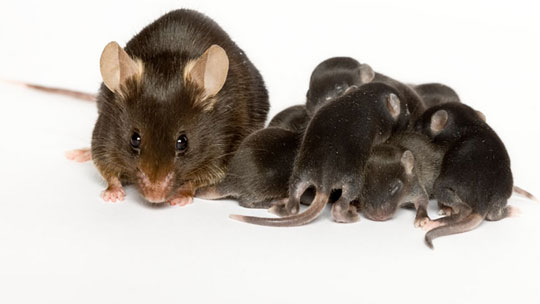Knocking out every gene in a mammalian genome to see what results is an audacious undertaking, but that’s exactly what the International Knockout Mouse Consortium has been working to do. But knocking out the genes is only part of the equation. Precisely characterizing the resulting mouse strains is crucial for learning the functions and biological mechanisms of the genes. The International Mouse Phenotyping Consortium (IMPC), composed of 18 research institutions around the globe including JAX, has been doing just that. A recent paper in Nature Genetics with Robert Braun, Ph.D., Stephen Murray, Ph.D., and Karen Svenson, Ph.D., of JAX as co-authors, presents the analysis for the first 3,328 genes, with models identified for 360 diseases.

The overall goal of the IMPC is to create a catalog of mammalian gene function that systematically associates mouse genotype-to-phenotype data without the problems associated with prior efforts, such as investigator bias and lack of reproducibility. The resulting adult phenotyping pipeline measures 509 parameters in male and female mice encompassing diverse biological and disease areas. Standardized protocols and rigorous data quality control are implemented to maximize the value of the data for research. The data are available to researchers through the IMPC portal (http://www.mousephenotype.org/).
The data produced so far has generated a large amount of new knowledge, with 90% of the gene-phenotype annotations described not previously described in the literature. Of the 3,328 genes phenotyped thus far, 1,830 of them had not previously had a mouse mutant produced, providing a substantial new resource for research into gene function. And three out of the 360 disease models produced were not previously reported: for Bernard-Soulier syndrome, type C; Bardet-Biedl syndrome 5; and Gordon Holmes syndrome. Finally, approximately 15% of the mutant strains will be rephenotyped in older mice (12-18 months) to identify late-onset disease genes.
Meehan et al., Disease model discovery from 3,328 gene knockouts by The International Mouse Phenotyping Consortium. Nature Genetics (2017) doi:10.1038/ng.3901